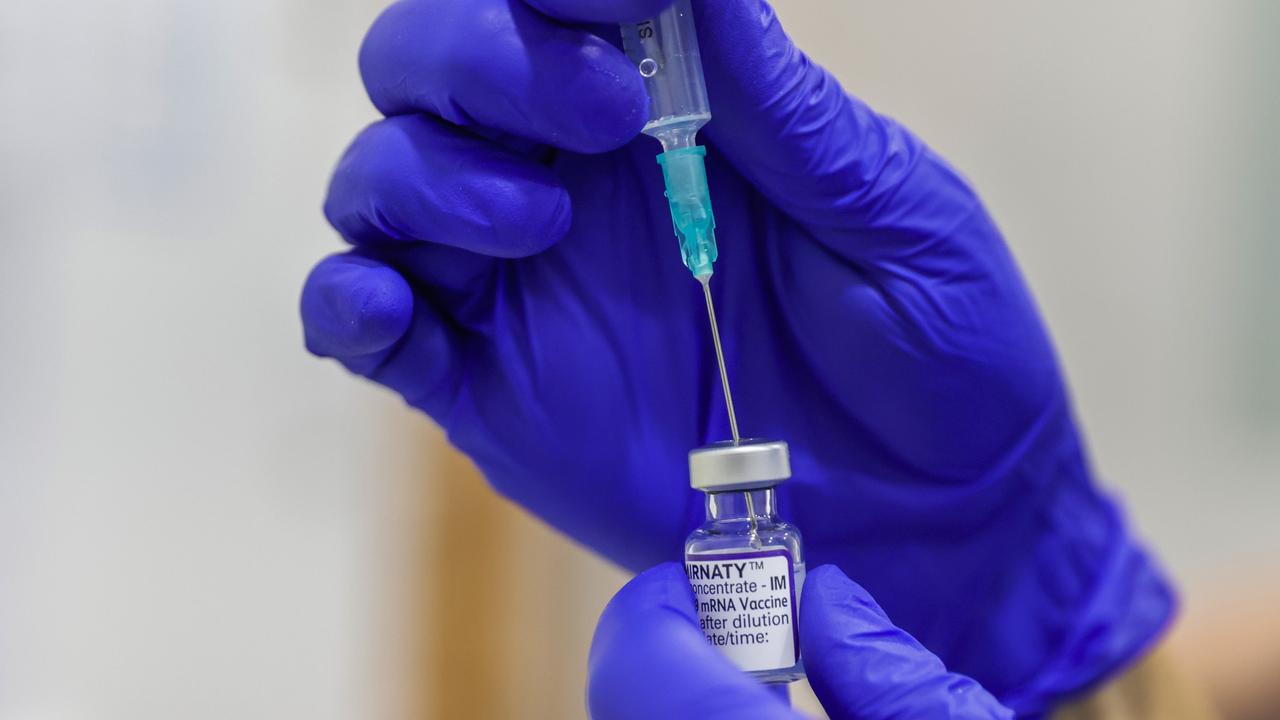Coronavirus NSW live updates: Carnival Cruise boss begs government to allow Ruby Princess to return
Carnival Australia's boss has called on the government to allow the Ruby Princess's crew to return to NSW after they were told 'it's time to go home'. Five passengers aboard the ship, which docked in Sydney earlier this month, have died. LIVE COVERAGE
This coronavirus article is unlocked and free to read in the interest of community health and safety. For full access to the Daily Telegraph journalism, subscribe here.
It’s not safe for the Ruby Princess cruise to sail away from Australia while sick crew members are still on board, the boss of the vessel’s parent company has said.
It comes as the NSW government told six foreign ships in or near Australian waters that "it’s time to go home”.
A number of crew members on-board the Ruby Princess have been evacuated from the ship and taken to hospital in Sydney in recent days, some needing treatment in intensive care units.
Police Commissioner Mick Fuller said anyone on-board ships off the coast needing medical assistance is being taken in “at a cost to the NSW taxpayers”.
But Sture Myrmell, President of Carnival Australia, said the company is in “high level talks” with the government about repatriating all crew who aren’t needed to keep the ship running.
“Australia has maritime obligations to protect the welfare of seafarers and as such we need to care for foreign nationals as we would expect other nations to care for Australians in similar circumstances abroad,” he said.
“Repatriation of Ruby Princess’s crew would be an important step in upholding Australia’s reputation as a caring maritime nation.”
Around 1000 crew members are still on-board the vessel, that been linked to three new coronavirus deaths across Australia, after almost 2700 passengers disembarked the ship on March 19.
It can now be revealed that a 60 year old man who needed medical care was evacuated from the Ruby Princess and taken to hospital last Friday night.
Three people were transferred from the vessel on Monday night, in addition to three others over the weekend.
Police Commissioner Mick Fuller said the evacuated crew members had “cycled through intensive care”.
He said sick crew were being brought ashore as-needed.
“We are receiving people sensibly back into New South Wales,” he said.
The Police Commissioner accused the Ruby Princess, and other ships off the coast, of “lingering” near Australia.
“It’s time to go home,” Commissioner Fuller said.
But the Carnival Australia president said the ship had left territorial waters “as demanded by the NSW government”.
“However, we remain concerned that it is not safe for the ship to sail away from Australia while there are crew members on board who are ill.
“While illness on board has been reduced due to strong health management, the ship needs to remain within reach of Australia to access healthcare services if an urgent need arises,” Sture Myrmell said.
The border force boss Michael Outram and Home Affairs minister Peter Dutton spoke with NSW authorities about further measures to get foreign cruise ships to leave Australian waters.
“We are looking at active options,” Police Minister David Elliott told The Daily Telegraph after the phone hook-up.
Last night, state Labor called on everyone aboard the Ruby Princess to be tested for coronavirus, to stop the virus spreading on the ship.
Police Commissioner Mick Fuller said such actions need to stop.
“We’re arresting and charging people for spitting and coughing on people every day, it’s a disgrace, putting aside the racial slur. Please report it, we will take actions,” he said.
“If we see continual incline in people spitting and coughing on people then I won’t hesitate in asking for (more) powers.
“Maybe it’s a $5000 fine that’ll sharpen people up on this.
NSW residents already face massive fines and even jail time if they break laws restricting non-essential travel and all gatherings to two people.
From Tuesday, people who leave their home without a valid reason - for work or study, buying food or other essentials, seeking medical care or exercise - are liable for a fine of up to $11,000 and a maximum six months in jail.
Originally published as Coronavirus NSW live updates: Carnival Cruise boss begs government to allow Ruby Princess to return


